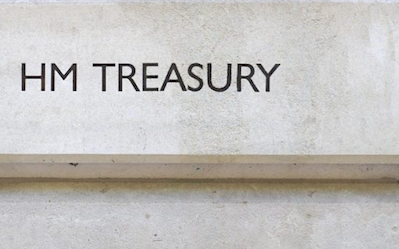By Mark McSherry
The UK government borrowed more than forecast in the first month of the new fiscal year due to higher debt interest payments, the additional costs of energy support schemes, and increases in benefit payments, according to the latest data from the UK’s Office for National Statistics (ONS).
The ONS said public sector net borrowing (PSNB ex) in April was £25.6 billion, £11.9 billion more than in April 2022 and the second-highest April borrowing since monthly records began in 1993 “with the growth in receipts being exceeded by the additional costs of the energy support schemes, increases in benefit payments and higher debt interest payable.”
UK central government debt interest payable was £9.8 billion in April, £3.1 billion more than April 2022 and the highest April figure since monthly records began in 1997, with the ONS saying “the recent large movements in interest payable are because of the effect of Retail Prices Index (RPI) inflation on index-linked gilts.”
The ONS said public sector net debt (PSND ex) at the end of April 2023 was £2.537 trillion — or around 99.2% of gross domestic product (GDP) “with the debt-to-GDP ratio at levels last seen in the early 1960s.”
While the UK central government’s receipts fell by £2.7 billion in April to £69.7 billion compared with April 2022, its total expenditure grew £22 billion to £109 billion.
The Office For Budget Responsibility said: “Borrowing in April 2023 of £25.6 billion was £3.1 billion above our March 2023 forecast profile – thanks to both slightly lower-than- expected receipts and slightly higher-than- expected spending – and almost double the £13.7 billion figure from a year ago.
“This year-on-year increase largely reflects higher inflation pushing up spending on debt interest payments (£3.1 billion higher than a year ago) and net social benefits (£4.5 billion higher).
“The latter, and spending on subsidies (£1.8 billion higher), were also affected by energy support schemes in the form of cost- of-living payments and energy price caps.”
Ruth Gregory, economist at consultancy Capital Economics, said: “April’s public finances figures got the new fiscal year off to a shaky start.
“But we doubt this will prevent the Chancellor from embarking on a fiscal splurge ahead of the next election, due to take place before January 2025.”
UK Finance Minister Jeremy Hunt said: “It is right we borrowed billions to protect families and businesses against the impacts of the pandemic and Putin’s energy crisis.
“But debt and borrowing remain too high now — which is why it’s one of our priorities to get debt falling.”
